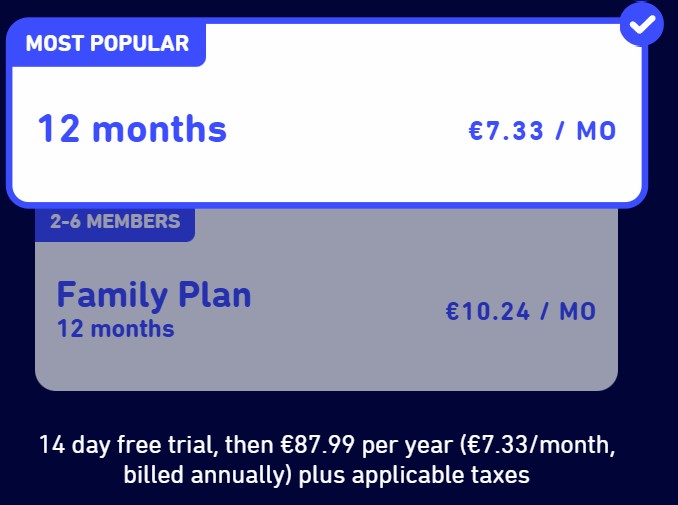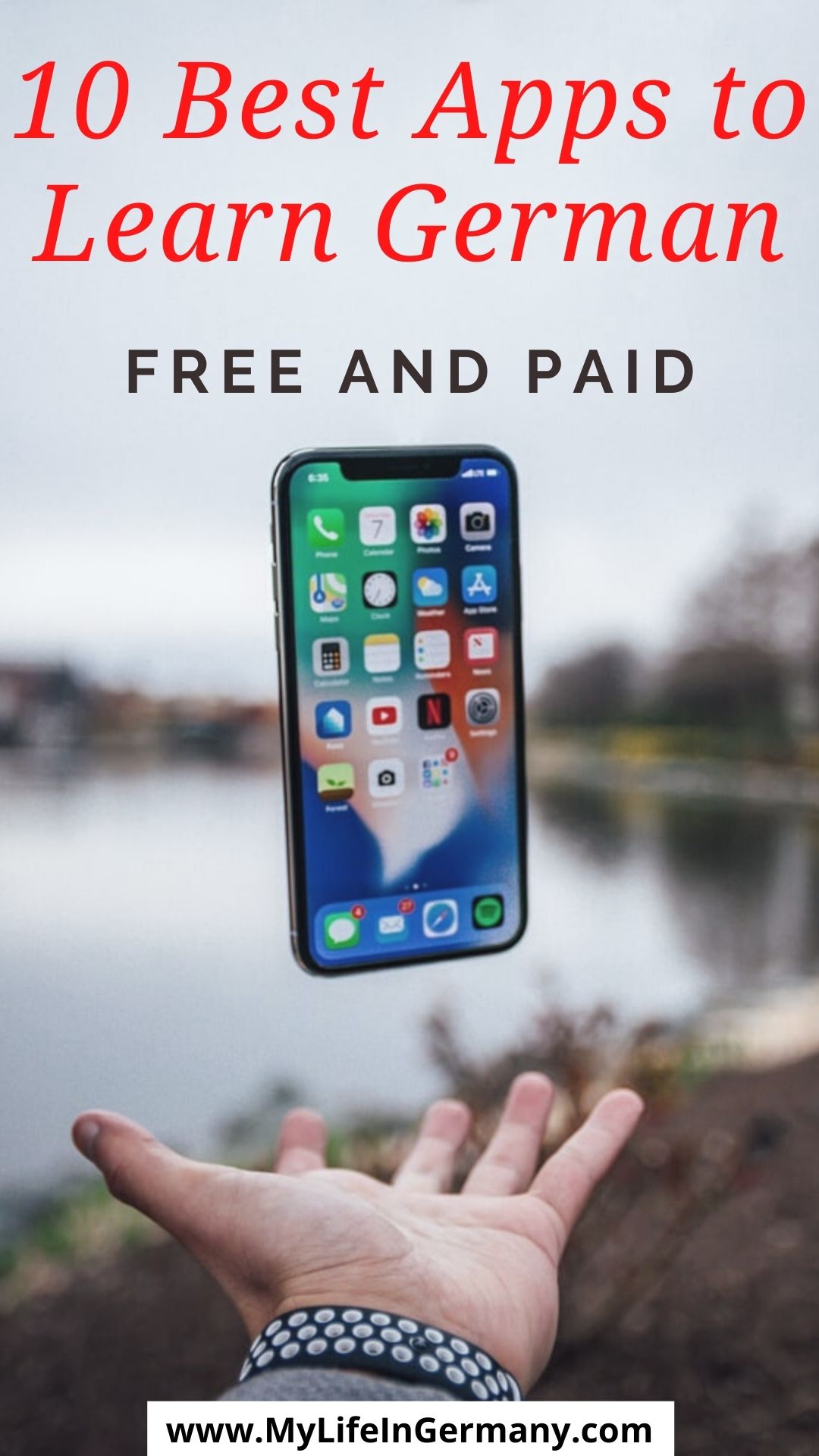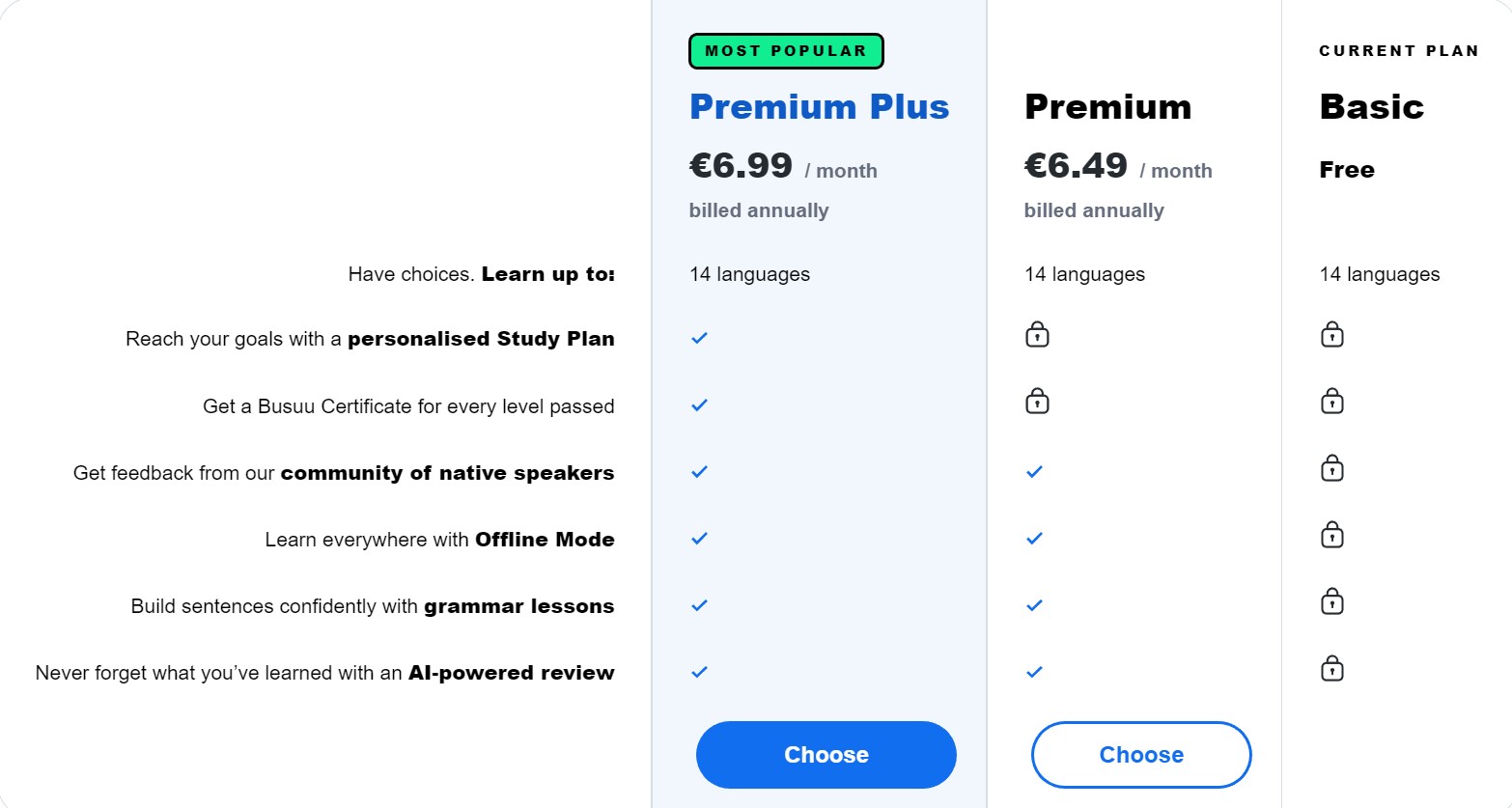This post contains affiliate links. It means that if you click on the links and make a purchase, we will receive a small commission at no additional cost to you. This allows our blog to continue providing you with free information. We only include links and products that we truly believe in. You can read the full disclosure here.
Moving to Germany or new in Germany? Check out our Resources Page for all the help you need!
Are you looking for a fun and effective app to learn German? You are at the right place. In this article, you will find an overview of the best apps to learn German, including the pros and cons of each of them. You will also learn how to choose the best app which best suits your individual needs, and 5 tips to learn German successfully with an app.
Table of Contents
ToggleA short and sweet summary for the busy people
If you don’t have much time, here are the highlights of the best 10 apps to learn German:
Apps | Short description |
Podcast-style lessons to learn German on the go | |
A personalized study program with flashcards, focusing on words and phrases | |
| Babbel | Best for intermediate and advanced learners to train all skills, including business German |
| Drops | Best for visual learners who want to improve their vocabulary |
| Mondly | Practice your speaking with AR and VR elements |
| Yabla | Learn German by watching authentic and interactive videos |
| Speechling | Best free apps for listening and speaking for intermediate or advanced learners |
| Busuu | Social network with personalized feedback for absolute beginners and intermediate learners |
| Memrise | Best for absolute beginners to learn German vocabulary and phrases quickly |
| Duolingo | Best free app for beginners who like games and need motivation |
Keep on reading for more details about the best 10 apps to learn German and scroll down for a detailed comparison table.
Introduction
If you plan to move to Germany, or if you are living in Germany already, you will definitely need to learn some German. Living in Germany without speaking German is very painful. Even if you live in a big city in Germany, you should still learn German. Without German, it will be very hard to find a job, or even a place to live in Germany! But what is the best way to learn German then?
The answer is, there is no best way to learn German. Everyone has a different learning style. If the classroom style is not for you, or if you are looking for something to supplement your classroom learning, a German learning app may be something for you.
Using an app to learn Germany has become more and more popular nowadays. It is easy and convenient, especially for busy people. But there are so many language apps in the market. It may be a bit overwhelming at the beginning. That is the reason why I have written up this post to help you.
Read also:
- How to write your CV in Germany (+ English template!)
- How To Write Your Cover Letter in Germany (+ English Example!)
What are the selection criteria for the apps in this post?
To help you save your time, I have compiled the best 10 apps to learn German in this article. I have spent tens of hours testing many different apps. My best 10 apps in this article include both free and paid apps. No matter which learning style you have, how good or bad your German level is, you will find an app in this list that is the best for you.
Note that some apps provide training on all the different skills, such as reading, writing, listening, and speaking. And some other apps only specialize in one single area.
I have excluded apps that offer live classes only. Joining live classes is a completely different way to learn German. I want to focus on apps that you learn by playing games or engaging in interactive activities, instead of purely participating in a class.
If you are looking for German classes instead, I can highly recommend the Lingoda German classes. Check out my review here: Lingoda Review – My Personal Experience Learning German
Can you really learn Germany with apps?
Language apps are super popular nowadays. Thanks to technology, language apps have now become a good alternative method to learn German. When I first moved to Germany for my studies 11 years ago, I was not aware that there was an option to learn German with apps.
I think language apps would have been a good supplement to my other learning methods like German classes and exercises. Besides, they are easy and relatively cheap to use.
But how effective is it to use apps to learn German? You may ask.
Let’s see what the research says. According to a research study, using language apps can help to improve grammar and vocabulary. The surprising finding is that some apps can even help to improve your oral communication skills.
36% of people who started learning a new language with apps ended up quitting. However, those who spent more hours learning in the apps have shown improved learning outcomes.
This result shows that using an app does help to improve your German. The important thing is that you stick with it and put in the necessary time and effort to make progress.
Read also: Best Blocked Bank Account in Germany – Compare the Top 3
The best 10 apps to learn German in 2024
So, now let’s get into the exciting part. You will find below the best 10 apps to learn German, including a short review with the pros and cons for each of them.
We picked these best apps to learn German based on our personal experience, online review, and in-depth research. We do not provide a complete market overview. Note that the data in this article is accurate as of the date when this article is written and is subject to change any time in the future. Please check the apps’ websites directly for the latest information.
Disclosure: If you click the links from the apps and make a purchase, we will receive a small commission at no additional cost to you.
1. Rocket German – Podcast-style lessons to learn German on the go
Features:
- Interactive podcast-style German lessons which are based on topics
- You are encouraged to repeat what you hear during the lessons
- Podcasts are conducted in both English and German, while the English speakers explain the German words and conversations
- Each lesson is about 25 minutes long
- Best for auditory learners who want to learn German on the go
Pros:
- You can use voice recognition technology to participate in a conversation. And your recording will be graded on your accuracy.
- You can learn vocabulary with flashcards. And you can also make your own flashcards.
- You can choose what you want to learn based on topics. Skip a lesson or move to another level as you want.
- You are pushed to engage in the conversation and speak out loud during a lesson
- You can download the lessons and access them offline. Best for people who want to save time and learn German on the go, e.g. in a car or while jogging, etc.
- You can gain points by studying consistently. Your points are then shown on the leaderboard that keeps you motivated.
- Besides engaging in a conversation, you can also learn German culture and grammar. A comprehensive list of vocabulary and phrases is also included based on real-life situations.
Cons:
- The app is only suitable for auditory learners. It is not for you if you are looking for tactile or visual-based learning methods
- Even though I chose the highest level, the podcast was conducted in both English and German. I would expect the whole podcast to be in German at the advanced level.
- Since you have to follow the conversation in the podcasts, you cannot practice free-style speaking.
Price:
- With the free trial, you can only test out the first lesson
- 60-day money-back guarantee
- Only lifetime subscription (see the price below)
Try Rocket German for free now!
2. MosaLingua Premium – A personalized study program with flashcards, focusing on words and phrases
Features:
- Flashcard-based lessons with more than 6,000 words and phrases to learn
- Four different programs: MosaLingua Premium, MosaTraining, MosaSeries, and MosaSpeak
- In the below review, I will focus on MosaLingua Premium
Pros:
- The spaced repetition method is used to help you to remember your flashcard contents.
- Words and phrases are organized by categories, e.g. tourism, socializing, conversation, etc. You can choose to learn the topics that fit your need.
- Structured grammar lessons in video, audio, and text format.
- The Premium app comes with extra useful resources like German short stories, audiobooks and ebooks (grouped by level), German music and videos, and more.
- Free download of MosaDiscovery – an app that can translate a word in any website, and let you add the word to your MosaLingua app easily.
- Optional paid programs to customize your learning based on your need:
- MosaTraining supports you when you try to learn a new language.
- MosaSeries includes an addictive story divided into multiple episodes. It is designed to train your listening, vocabulary, and grammar.
- MosaSpeak helps you to speak German with confidence.
Cons:
- The design of the platform does not look very fancy compared to other apps.
- MosaLingua Premium mainly works on vocabulary, listening, and grammar. If you want to focus on your speaking, you should get MosaSpeak.
- Unlike the all-in-one approach like in other apps, MosaLingua includes different programs so that you can subscribe to the one most suitable for you. But it can also be a bit confusing at the beginning when you are not sure which one you should subscribe to as they are priced differently.
Price:
- 15-day free trial
- 30-day money-back guarantee
- 1-year subscription (see the price below)
Try Mosalingua for free now!
3. Babbel – Best for intermediate and advanced learners to train all skills, including business German
Features:
- A professional interactive language app with a clear and straightforward interface
- Each lesson lasts 10 to 15 minutes
- Heavy focus on writing, grammar, and pronunciation
- Suitable for intermediate and advanced learners
Pros:
- You can practice speaking with the help of speech recognition technology
- Lessons are designed to help you get to a conversational level quickly, by offering interactive dialogues and speaking exercises
- Learn new vocabulary and phrases with the supplement of audio, text, and pictures
- Not only flashcards but also short multiple-choice and fill-in-the-blank exercise
- The exercises are very repetitive, which helps you to remember new vocabulary and phrases better
- Comprehensive grammar explanations and exercises
- Curriculum-based lessons focus on different areas, including grammar, listening and speaking, reading and writing, German traditions, and even business German
- Babbel also offer live classes with a maximum of 8 participates in each class
Cons:
- Babbel can be too complicated for absolute beginners, as most exercises focus on phrases but not only the vocabulary
- No interaction with other users or teachers in the app
Price:
- Without a subscription, you can access the first lesson of each topic for free
- 20 Day Money-back Guarantee
- If you subscribe to the live classes, you can also use the app
- A 1-month, 3-month, 6-month, or 12-month subscription for the app (see the price below)
4. Drops – Best for visual learners who want to improve their vocabulary
Features:
- Visual training that focuses on learning vocabulary and phrases
- Lessons are designed as games, where you can match each word to its corresponding picture by dragging or tapping on your screen
- Suitable for casual learners who want to improve their vocabulary
Pros:
- Very beautiful visual interface
- Games are relaxing and fun to play
- Simple to use and understand
- Though each lesson only lasts for a few minutes, it includes a lot of audio, pictures, and text. This really helps you to absorb your learning easily.
- Lessons are organized into different topics, e.g. food, travel, work, etc. You can choose to learn the vocabulary that you need.
- Easy to include as part of your daily routine without feeling overwhelmed
Cons:
- Drops only focus on vocabulary and phrases, but not grammar or speaking
- The games do not have many varieties
- Some pictures may be difficult to distinguish
- You cannot rely on this app alone to achieve full fluency in German.
Price:
- A free or premium version
- Free version with 5 minutes playtime per 10 hours
- Premium versions have unlimited playtime, no ads, and other extra features
- 7-day free trial
- 1-month, 12-month, or lifetime subscription (see the price below)
5. Mondly – Practice your speaking with AR and VR elements
Features:
- A unique language learning app with augmented reality (AR) and virtual reality (VR) elements.
- Best for beginners who want to improve their pronunciation and get conversation practice
- The best is to use this app as a supplement to your other German learning methods like another app or German classes.
Pros:
- You can interact with your own AR teacher who can appear at your home or wherever you are at. This allows you to interact with animals or other objects and reinforces your learning.
- The speech recognition technology lets you have a lifelike conversation with the chatbot, who offers positive feedback when you speak correctly.
- If you use its VR app, you can immerse yourself in a foreign environment without having to travel.
- Innovative, beautiful, and fancy interface
- You can build your vocabulary with easy activities like games and translation, which are fun to play.
- The curriculum focuses on actual conversations so that you can practice your pronunciation.
- You can earn points by completing the lessons, which will be reflected on a leaderboard. Stay motivated by competing against other users in the world.
Cons:
- Even I have chosen the advanced level, the learning is still very simple. The app is more suitable for beginners.
- The app does not focus on grammar.
- While the games are fun, there is not much teaching and explanation.
Price:
- A free or premium version
- The free version has very limited access
- 1-month, 12-month subscription, or lifetime access (see the price below)

6. Yabla – Learn German by watching authentic and interactive videos
Features:
- A learning app with more than 2,500 videos and learning tools
- Learn German with interactive videos including TV shows, music, interviews, documentaries, lessons, and more.
- Watch videos with your computer or mobile phone, whenever and wherever you want.
Pros:
- You can turn on both English and German subtitles in each video.
- An online dictionary directly next to the playing video
- You can simply click on the German word in the subtitle to get it translated immediately
- Watch videos with conversational speed, while being able to slow down or repeat the videos anytime
- You can play fun games like dictation, vocabulary, comprehension, etc. after watching each video
- Different types of exercises, including multiple-choice and also writing training.
- Fun and entertaining videos with a huge variety of content, featuring many different speakers and accents
- Choose a video suitable for your need by picking the difficulty level.
Cons:
- No structured learning path, which may make it difficult for beginners who need more guidance.
- The app does not focus on practicing your speaking skills.
- The design of the website looks a bit old-fashioned.
Price:
- Some sample videos are free
- 15-day free trial to access all kinds of videos
- 14-day money-back guarantee
- 1-month, 6-month, or 12-month subscription (see the price below)
7. Speechling – Best free apps for listening and speaking for intermediate or advanced learners
Features:
- One of the only apps that have a heavy focus on listening and speaking
- Best for intermediate or advanced learners who want to improve their pronunciation and get conversation practice
- Training includes dictation, listening, flashcards, fill-in-the-blank exercise, etc.
- Curriculum from A1 to C2
Pro:
- You can record yourself verbally, which will be corrected by a native German speaker (similar to a private tutor)
- Your recording can be a description of an image, an answer to a question, a repetition of a sentence that a native speaker has said, or simply a freestyle talking
- You can choose exercises based on your level, or by category
- Get personalized feedback by native German speakers not only on your pronunciation, but also your grammar, word choice, intonation, etc.
Cons:
- It may not be the best for beginners
- The time limit of one recording can be quite short in the free version
Price:
- Free or Speechling Unlimited
- With the paid version, you get unlimited, personal, 1-on-1 coaching. You can also increase the length of your recording limit.
- 1-month, 3-month, or 12-month subscription (see the price below)
8. Busuu – social network with personalized feedback for absolute beginners and intermediate learners
Features:
- A language learning social network with a large community
- Lessons based on CEFR framework (from A1 to B2)
- Include reading, writing, speaking, and listening exercises
- Suitable for absolute beginners and intermediate learners
Pros:
- Get personalized feedback from native German users for your writing and speaking
- Fill-in-the-blank, sentence puzzles, and true or false exercises focusing on vocabulary and grammar
- Listening and communication exercise based on real-life conversations
- Practice speaking with other native German users
- You can choose your lessons by topics
- Lessons supplemented with images and audio
- You can take a placement test at the beginning to assess your German level
- Simple design and user-friendly interface
- Stay motivated by tracking your progress and seeing how many new words you have learned
- You can see how long each lesson lasts
- Busuu also offer private live German classes (from A1 to C2)
Cons:
- The grammar explanations are not as comprehensive as in other learning apps
- Some exercises have no translations
- Some exercises do not provide explanations for a wrong answer
- Lack of funny and entertaining games compared to other apps
Price:
- Free, premium, and premium plus version
- Premium versions have more content and features
- 14 Day Money-back Guarantee
- A 1-month, 12-month, or 24-month subscription for the app (see the price below)
9. Memrise – Best for absolute beginners to learn German vocabulary and phrases quickly
Features:
- One of the best apps for absolute beginners to learn German fast.
- A great trainer to learn German vocabulary and phrases quickly.
- Spaced repetition system: when you play with the flashcards, the vocabulary and phrases get repeated so that you can remember them easily.
- The best is to use this app as a supplement to your other German learning methods like German classes.
Pros:
- Learn with flashcards that use pictures, audio, or short video clip made by native German speakers. This makes the learning experience funny and interesting.
- Vocabulary is pronounced by real people, with their authentic voices and accents.
- Lessons focus on vocabulary that helps you to have conversations in real-life situations, e.g. Ordering in a restaurant, shopping, and greeting new friends.
- Lessons created by both Memrise and other users, grouped in different categories
- Create your own lesson that best suits your learning need.
- You can set language goals that help you to stay motivated
- Earn points when you learn German. And compete with your friends.
- Besides languages, there are thousands of other programs you can learn from, e.g. Maths & science.
Cons:
- Lessons do not focus on grammar or speaking.
- Most of the lessons are only created for beginners.
- Not very suitable for advanced German learners.
- You cannot rely on this app alone to achieve full fluency in German.
Price:
- A Free or premium version
- The premium version offers extra content and other features
- 3 different plans (see below)
10. Duolingo – Best free app for beginners who like games and need motivation
Features:
- One of the most popular free app
- Learn German by playing fun games
- You can score points by playing the games and can unlock more games with your points
- Lessons include multiple choices, flashcards, listening, writing, and translation exercise
- The best is to use this app as a supplement to your other German learning method like German classes.
Pros:
- Free and accessible for everyone
- Easy to use and straightforward design
- Short lessons with game-like features, interactive stories, and fun challenges
- You can set up how many minutes you want to learn per day
- You can start as a beginner or take a placement test
- Lessons are based on topics that help you get around in the real-life, e.g. family, jobs, etc.
- The point-scoring system keeps you motivated
- Duolingo language forum lets you interact with other users
- You can join online live events to learn German (both free or paid)
Cons:
- Most of the lessons are only created for beginners.
- Ads in the free version
- You cannot rely on this app alone to achieve full fluency in German.
- The grammar lessons are not as comprehensive as other learning apps
- Some lessons can be quite repetitive
- You may not have access to certain topics until you finish all the previous exercises.
Price:
- Free or Duolingo plus version
- Duolingo plus has no ads and some extra features
- 2 weeks free trial
- 1-month, 12-month, or family subscription plans (see the price below)

How to choose which app is the best for you to learn German?
So, there are so many different apps in the market. How do you choose the best one that fits your need? The answer depends on a few factors.
| Your German level | The main skills you want to train | Paid or free (with limitation/ ads) | Your learning style |
✅All levels | Speaking, listening, grammar | Paid | Auditory | |
✅All levels | ✅All skills | Paid | Tactile | |
Intermediate/ advanced | ✅All skills | ✅Free | ✅All styles | |
Beginner | Vocabulary | ✅Free | Visual | |
Beginner | Speaking, listening | ✅Free | Auditory | |
Intermediate/ advanced | Listening, vocabulary | ✅Free | ✅All styles | |
Intermediate/ advanced | Speaking, listening | ✅Free | Auditory | |
Beginner/ Intermediate | ✅All skills | ✅Free | ✅All styles | |
Beginner | Vocabulary | ✅Free | Tactile | |
Beginner | Vocabulary | ✅Free | Tactile |
Note that the skills mentioned in the table are just the skills that the apps are trying to focus on. For example, an app focusing on vocabulary training does not mean that it provides zero training for other skills. Similarly, an app focusing on visual learning style does not mean that it has no tactile or auditory components.
Besides, you can use any of these apps regardless of your German level. But you may find it more comfortable if you use an app that is tailor-made for beginners when you are just starting out.
Read on for more details about each of these factors before choosing your ideal app.
What is your German level?
How good is your German at the moment? Many apps are tailored for beginners. But there are also some for intermediate or advanced users.
Which skills do you want to focus on?
Different apps focus on different German skills. Some heavily focus on a single skill, while others focus on several or all the skills. If you can already hold a conversation in German but are struggling with grammar, try to find an app that helps to improve your grammar.
If you just want to get to the conversational level, there are apps that specialized in helping with your listening and speaking.
How much budget do you have?
Some apps are completely free to use. Yes, you hear it right. They are free to use. But you may see some ads in between, or you do not have full access to all the content if you do not pay.
In many cases, almost all the apps give you certain days in the free trial or money-back guarantee. This is so that you can try them out to see if they are for you. If not, just cancel it and get your money back. No risk. So, if you are unsure which app is the best for you, I would encourage you to simply try them out and pick your favorite one.
What types of learning styles?
Everybody learns differently. Visual learners learn by reading and seeing images or videos. Tactile learners learn by doing physical activities, such as playing a game. Auditory learners learn through listening.
Some apps can give you all these three different elements, while others only focus on a certain learning style. Again, choose the app based on your own learning style.
5 Tips to learn German with an app
1. Use a few apps
As mentioned before, every app has a different focus. Some focus on training your pronunciation, while some others focus on vocabulary. To master the German language, you need to be able to read, write, understand and speak.
Since not all the apps can train you in all these aspects, you may want to use a combination of 2 or 3 apps to learn German. For example, let’s say you want to improve your pronunciation and vocabulary. But you want your learning process to be fun and also learn while you are on the go.
In this case, you may want to use Drops, Busuu, and Yabla. Here is an example:
- Play games with Drops to improve your vocabulary while you are commuting to work every morning.
- Do a short speaking exercise with Busuu every day before bedtime to get personalized feedback on your pronunciation from other users.
- Watch a TV show with Yabla on the weekend for fun while improving your German at the same time.
Don’t worry about the cost. You can use most apps for free with limited content. Just try with their free content first to see if the content is sufficient and if this way of learning is right for you.
2. Use apps to learn German as a supplement
Depending on the app you use, you may not rely on the app alone to achieve full fluency in German. It is because not all the apps are curriculum-based and they may not focus on all the skills including reading, writing, speaking, and listening. Instead, many apps focus on games and vocabulary only.
That doesn’t mean that apps cannot help you with learning German. Quite the opposite. Apps can be very effective, especially when combined with other learning methods like German classes.
Combine app learning with your German class
I have attended countless German classes since I moved to Germany. The drawback of attending a traditional German class is that it is not as flexible as learning with an app. You need to travel to the class regularly at the same time every week. Besides, not all the teachers give out and correct homework. You have to study a lot at home after class to improve your German. Simply going to class and do not do anything outside the classroom won’t bring you anything.
That’s why I think the best is to use an app as a supplement to your German classes. You can use an app to make your own flashcards with the vocabulary that you learned from your classes. That is how you can always refer back to the words you learned and train yourself in a fun way.
Similarly, if you learn a new grammar rule in your class, you can also play games in your app for the same rule so that you can remember the rule easier and better. Using an app is a fun and interactive way to reinforce your learning, compared to forcing yourself to memorize directly from the textbook.
Looking to join a German class?
I can highly recommend the Lingoda German classes. You can take online classes with qualified native German teachers at any time from anywhere in the world. You can book classes 24/7. The only thing you need is your computer and a stable internet connection. I write about it here: Lingoda Review – My Honest German Learning Experience
You can try Lingoda out for free with a 7-day trial with no risks. Don’t forget to use my code “lifeingermany” to get a 30% off if you decide to join the classes!
3. You still need to put in the effort
Like any other studying method, using an app to learn German also requires a lot of time and effort. Apps are fun to use. They are designed like this to make it interesting and keep you motivated. But using them to learn German does not mean that you are really “just playing”. You need to put your time into it. You need to concentrate to learn the new German words or rules.
For example, if you use Yabla to watch a TV show, you should also play the games afterward so that you can reinforce the new vocabulary that you have learned in the show.
The learning process will be much more fun when you use an app. But don’t have the unrealistic expectation that you don’t need to put in the effort anymore because you are using an app. If you are looking for other fun ways to learn German besides using an app, check this out: How to learn German: My secret fun ways
4. Find your motivation to learn German
According to research, 36% of people who started learning a new language with apps ended up quitting. Apps can be very fun. But without motivation, you can still lose interest very fast. Therefore, it is best to keep your motivation high at all times. But how?
Paying is bad. However, payment can be a good form of motivation. For me personally, when I pay for a subscription, I will have a higher motivation to use the service. For example, since I paid for my monthly gym subscription, I tried to go to the gym as much as I can in the month. The logic is simple. The more I use the gym, the cheaper it is for me (per visit).
Same for my German class subscription. I tried to not miss any of my classes because I have paid for them. If you use a paid German app, there will also be a motivation for you to use it as much as you can.
Payment is only one form of motivation. Many apps let you set your learning goal. You can set as low as 5 minutes a day. It doesn’t matter how little you practice per day, as long as you are sticking with your goal and train every day.
Alternatively, you can also set some goals by yourself. For example, in the past, I gave myself a goal to study 10 vocabulary a day. You can also set other rules for yourself. An example: you need to use and play with the app whenever you are commuting on the train. Anything you can think of that provides motivation for you to learn German with your app will help.
5. Make use of the free trial/ money-back guarantee
Almost all the paid apps give you a limited period of a free trial or a money-back guarantee. So, don’t be afraid to try them out. Everybody learns differently. You need to find the ideal app that best suits your need. Take advantage of the free trial period and explore different apps until you find your best one.
Conclusion
So, now you have a list of the best 10 apps to learn German. There is no excuse anymore not to start to learn German. This article only focuses on using an app to learn German. There are many other fun ways to learn German without using an app (I tried all of these methods personally). If you want to learn German fast, consider using some of these other methods and/or joining the Lingoda online German class as well.
Pin it for later:

Are you using an app to learn German? Which one is your favorite and why? Leave a comment below and share your experience!
Moving to Germany or new in Germany? Check out our Resources Page for all the help you need!
If you found this article helpful, consider supporting this website by buying me a coffee. Every small donation helps to keep this blog alive. You can also ask me any questions here. Buy me a coffee















